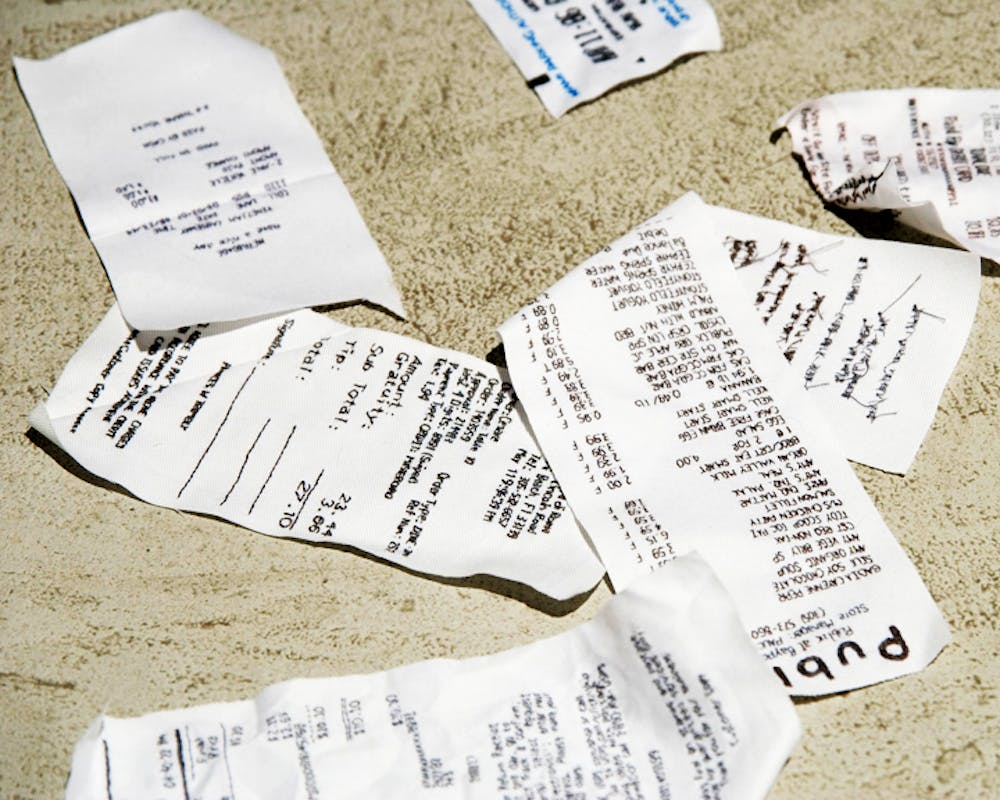Appearing to be a “space in transition,” Frances Trombly’s exhibit, “Everything and Nothing,” currently on show at The Galleries at Moore, could easily be dismissed as an unfinished installation. Blank canvases and discarded cardboard boxes litter the room; a large tarp occupies the center of the space and haphazardly covers an indiscernible, lumpy object.
However, upon closer inspection, Trombly’s level of skill and creativity is both shocking and undeniable. What seems to be a flattened cardboard box is actually an entirely hand embroidered masterpiece. When carefully scrutinized, a pile of receipts in the corner of the room are found to be intricately woven imitations, reproducing the intimate details of past Target runs, Publix trips and late night dinners in Miami. These, among 10 other seemingly dispensable objects, are all consciously strewn about the room, underplaying (and ironically highlighting) their own physical complexities and the sophisticated ideas they represent.
“Everything and Nothing” revives Marcel Duchamp’s once controversial concept of ‘readymades,’ but does so with an excellent twist. Referring to her pieces as “reverse–readymades,” Trombly plays with the relation between viewer and object, forcing her audience to reconsider the idea of artistic value in a gallery setting. By weaving, cross–stitching and embroidering, the artist breaks down the consumer–product relationship and adds to it an unexpected distinctiveness.
The work titled Mop combines hand–spun silver wool and cotton elements with a ‘readymade’ wooden handle, an arrangement of mixed media that makes one reconsider the boundaries between creation and consumption. Another piece, All Purpose Tarp, is creased and folded, as if it were recently moved from storage and quickly thrown over an object. But when recognized as a presented work, the hand woven polypropylene fiber becomes a demonstration of creativity and undeniable labor, confirming its identity as art.
Trombly constantly hints at the underlying complexity of her work throughout the exhibit. Small moments like an embroidered bar code on one of her cardboard boxes, a store manager’s phone number on a discarded receipt or even a tiny “Made in China” tag under an upturned corner of tarp gently tease the viewer in a playful yet resonant way.
At the show's exit, a sign at the entrance to the next room reads: “Please pardon our appearance while we install our upcoming exhibition,” another small detail epitomizing Trombly’s genius. A walk through this exhibit puts the viewer in a curious predicament, erasing the ability to distinguish where the artwork ends and reality begins — a little disorienting, but charming all the same.
Now through 3/15 Free Admission The Galleries at Moore 20th St. and The Parkway (215) 965–4027







